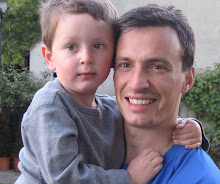As you take the air-conditioned coach from Varedero to Havana, you could be forgiven for thinking that a world without McDonalds and Starbucks might not have been such a bad alternative.
The palm trees sway gently, weighed down by an abundance of coconuts on the white sands of the Caribbean beaches. The people seem proud of their history and culture and prepared to withstand the tide of global economics, which is flowing in the opposite direction.
Make no mistake; Castro's legacy is that Cuba is communist but what of it? Can it be that the only communist country West of Korea could actually be serving its people effectively?
If you are a Cuban today, there are no waiting lists for hospital operations – the Cuban government has invested hugely to give every man, women and child the opportunity for comprehensive health care free of charge. Cuba also boasts some of the most advanced medical research into some of the world’s deadliest diseases.
Neither are there are there students concerned about how they are going to pay tuition fees and be able to afford to live – every Cuban has the opportunity to free tertiary education – and I mean free. Students at Havana University get their food, accommodation, books and even pencils paid for by the state.
And there is no New Deal scheme to get the unemployed back to work because 100% employment was one of the key aims of the Revolution in ’59.
In fact, on the face of it, the Communist system in Cuba seems to have ‘delivered’ exactly the sort of public service provision that so many voters seem to be demanding in this country.
The Revolution in 1959, led by the young Fidel Castro, seems to have achieved its goals of establishing an egalitarian society based on the humanist values of equality, liberation and fraternity. The armed revolution was achieved with the might of a handful of determined guerrilla revolutionaries – idolised in the face of Ernesto ‘Che’ Guevara who fought for Cuba’s autonomy despite being Argentinean. These men succeeded in getting the support of the illiterate farmers to fight with them to over-turn the US administered regime, overseen by the Cuban dictator, Batista. Years of domination by the imperialists of Britain, Spain and then the infamous US were over, with a revolution promising to make Cuba independent and close the gap between the rich and poor.
So why can't we be more generous to the ageing Castro as he bows out after 49 years at the helm?
Take a closer look. The crumbling wall-paintings of Che Guevara and the victorious Revolution are a clue as to why the communist ideals have not served their people as well as it might seem. The flag-ship social reforms hide the truth that the cost for the ordinary Cuban in terms individual freedom has been colossal. In the clamour for our trains to run on time and for our schools to be better resourced – we would do well to remember that protection of our right to be genuinely free citizens is the greatest public service any government can provide.
‘There are no rich people in Cuba’ we were told. ‘Everything is owned by the state. We are given on average $15 a month salary and that is basically the same whether you are a bar-man or a doctor.’ In fact, Cuba has a problem because many of her doctors and lawyers are leaving their profession to serve drinks to tourists in hotels. The money they make in tips puts them among the most plentiful in the country. The goal to eradicate extreme poverty has been pursued by making relative poverty the norm for all.
Although there is not the atmosphere of intimidation and fear that characterised the Soviet forms of communism, control is central to the sustaining of this system. Castro shruged off calls for greater democracy by pointing to the ‘democracies’ of countries such as Brazil where thousands of street children are left to fend for themselves. ‘Why isn’t the international community bringing sanctions on these countries?’ he asks. But this evasion misses the point. There is no greater oppression than to deny citizens a genuine stake in their own destiny.
The ironies couldn’t be more stark. The revolutionary heroes risked everything on the chance they might win liberation and independence. Yet in sustaining the communist system they have placed national identity ahead of individual freedom. They have placed equality as the highest goal and clipped the wings of a nation’s ambition.
The Cuban revolutionaries believed that human effort alone could rid the world of domination and exploitation. Towards that end, the revolutionaries set about re-educating citizens about the benefit of ‘voluntary participation’ (work without rewards) and the evil of competition.
The critiques of capitalist globalisation should be heeded. Reforms in the WTO and IMF need to happen in order for global trade justice to prevail. It cannot be right that the amoral market should be left to determine the value of commodities with no reference to the context within which those goods were produced. However, capitalism works because it works with the grain of human nature rather than against it.
Castro believes that communism has transformed ordinary Cubans from once dreaming of their own happiness to dreaming of the happiness of everyone.
The reality is much sadder: no one in Cuba dreams anymore.
Tuesday, February 26, 2008
Subscribe to:
Posts (Atom)



